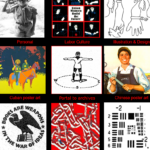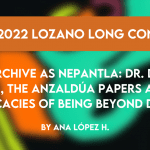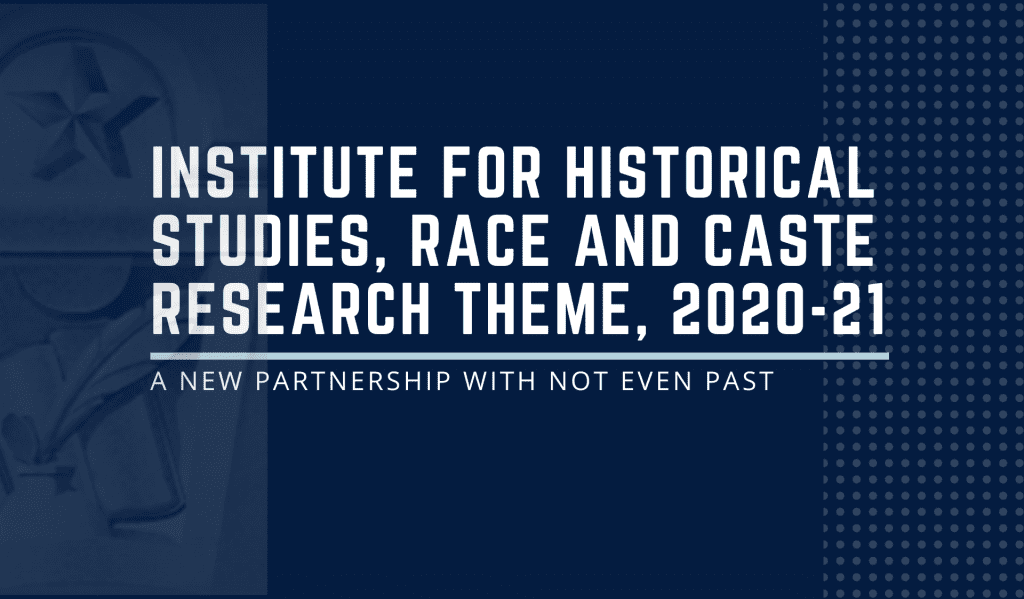
Not Even Past is delighted to collaborate with the Institute for Historical Studies and its innovative Race and Caste research theme in 2021-2022. Under the leadership of a new Director Dr. Jorge Cañizares-Esguerra, the Alice Drysdale Sheffield Professor of History, the Institute’s program this year centers on the work of nine junior and advanced graduate student Fellows from the History Department at The University of Texas at Austin. Each student will develop either an essay for submission to a scholarly publication, or a proposal for a grant application.
Each piece will be workshopped twice during the year. Fellows will present the first draft of their work virtually via Zoom in the Fall semester, and a revised version of the essay in Spring in-person on campus. They will receive two rounds of critical feedback and crucial guidance on their projects from leading scholars in their fields joining from UT and across the globe. At each workshop, the student will be in conversation with three scholars– two from outside of the university and one UT affiliate. With their final, polished essays at year’s end, Fellows will submit their works to scholarly publications in their field, or to grants organizations.
“The intention here is to guide the student on how to transform a good essay into a great essay,” said Cañizares-Esguerra. “There are no formulas, of course. We want discussants to help Fellows identify blind spots in their arguments and in the structure of the essays, if there are any. Each respondent brings a different expertise to bear. That is the beauty of this exercise.”
The Race and Caste cohort has already participated in intensive discussions around the mechanics of essay writing. Last July, Cañizares-Esguerra invited a roundtable of accomplished UT History alums to speak about their publications, and to define how a “great” article follows particular structures. As graduate students, these alums submitted pieces to leading journals, including American Historical Review, The Hispanic American Historical Review, Journal of American History, Renaissance Quarterly, and The William and Mary Quarterly.
“The basic structure we concluded,” Cañizares-Esguerra said, “is to bring two, and sometimes more, separate, unrelated historiographies to bear on a third subject, thus changing perspectives on all three areas at once. To do this, one needs a command of the interventions these historiographies are seeking to make. We need students to do the historiographical work daringly and explicitly.”
In addition to workshopping their essays, Fellows will host podcasts with their respective respondents to explore and engage with the external scholar’s work in relationship to the Fellow’s research. Fellows will also write short articles examining respondents’ publications, particularly those works that speak most closely to the students’ areas of study. Recordings of the workshops, podcast episodes, and short written pieces will all be featured on UT History’s public history resource, Not Even Past. The first podcast is available here.

Launching the Race and Caste workshop series on Monday, September 13 at Noon, Fellow Alexander Chaparro-Silva will present “Democracy and Race in the Americas: Readings of Tocqueville’s Democracy in America South of the Rio Grande” in conversation with three prestigious scholars working in his field: Dr. Lina del Castillo (Associate Professor of History, University of Texas at Austin); Dr. Nicola Miller (Professor of Latin American History, University College London); and Dr. James Sidbury (Professor of History, and Andrew W. Mellon Distinguished Professor of Humanities, Rice University). Chaparro-Silva is an intellectual historian and doctoral student in History at UT Austin. His dissertation analyzes how Latin American intellectuals came to the US, offered a sophisticated comparative reflection on democracy and race relations in both Americas, and crafted racialized continental differences during the nineteenth century. His research is supported in part by The Conference on Latin American History and The Tinker Foundation. He coedited a book about print culture in Spanish America during the Age of Revolutions and has published several peer-reviewed articles in the US, Colombia, and Argentina. Register to attend this workshop and receive the pre-circulated paper here, and save the date for his second workshop taking place January 24, 2022, at Noon (details forthcoming).
Read about this year’s Race and Caste Fellows and their projects:

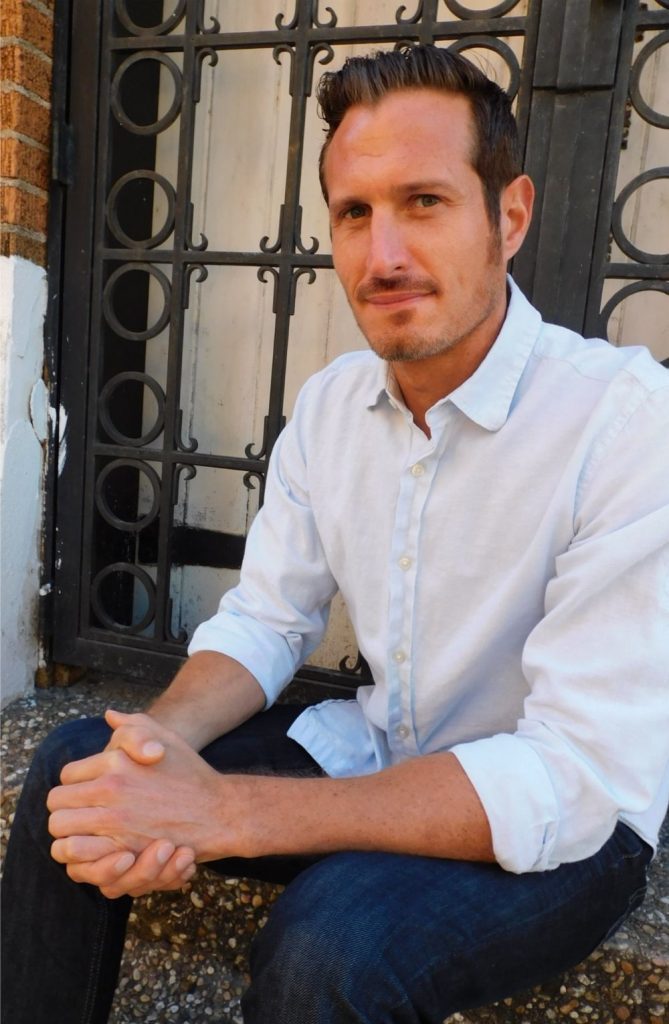

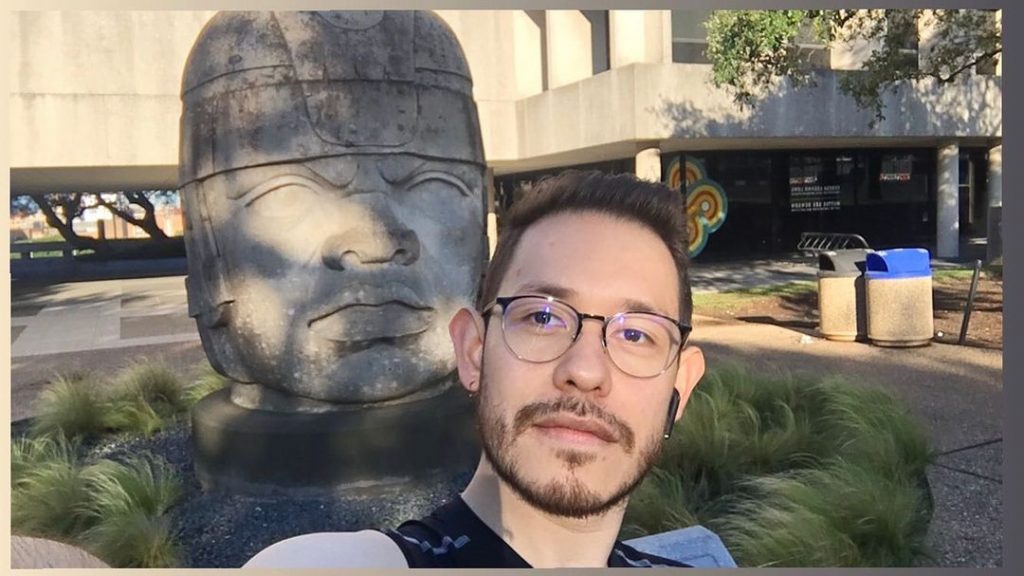
“The Mexican Empire under Agustin de Iturbide and Indigenous Texas”
Sheena Cox is a Borderlands Ph.D. Candidate at the University of Texas at Austin. Her research is focused on the Liberal Enlightenment in Texas, and its impact on Indigenous relations with Tejanos and Mexicans, 1810-1839. In addition to her dissertation research, Sheena is also dedicated to public history and historic preservation through projects with the Bullock Texas State History Museum and the Texas Historical Commission. From 2019-2021, Sheena worked as the coordinator for TSHA’s annual meeting program. She has served as a graduate research assistant for the Handbook of Texas, and as an assistant editor for the Handbook of Texas Women and Handbook of Dallas Fort-Worth Handbook projects.
“Pacific Soundings: Race, Abolitionism, and the Birth of Mexican Citizenship”
Gary Leo Dunbar is a doctoral candidate in Latin American history. His research examines the history of slavery, abolitionism, and citizenship in the Americas with a specific focus on Pacific Mexico. Gary holds a bachelor’s degree in anthropology from the University of Oregon and completed his master’s work at Central Michigan University (CMU) in the U.S. and Benemérita Universidad Autónoma de Puebla (BUAP) in Mexico. His research has been funded with grants from the U.S. Department of Education, LLILAS Benson Latin American Studies and Collections, and UT’s history department and College of Liberal Arts. He is the recipient of a President’s Award for Best Conference Paper at the International Graduate Historical Studies Conference, a Graduate Paper Prize from CMU’s College of Humanities and Social and Behavioral Sciences, and an Outstanding Graduate Thesis/Project Award from the Office of Research and Graduate Studies at CMU for his master’s work. Gary is currently at work on the second edition of Thomas Benjamin’s The Atlantic World: Europeans, Africans, Indians and their Shared History, 1400-1900 for Cambridge University Press.
“Reimagining Borders: Triangular Transnationalism and Chinese Mexicans”
Jian Gao is a third-year PhD student at UT Austin. My primary research focuses on the transnational history of the Chinese in Mexico during the first half of the twentieth century, and my secondary research focuses on the global dynamics of Latin America during the Cold War era. My works have appeared in The Latin Americanist, Asian Journal of Latin American Studies, and International Report on Drug Studies. My papers won multiple awards from Latin American Studies Association (LASA), Rocky Mountain Council on Latin American Studies (RMCLAS), Southeastern Council of Latin American Studies (SECOLAS), and the World History Association (WHA).
“Relaciones in Response to a World of Questionnaires: Community Knowledge, Ethnicity and Legal Culture from the Spanish Empire’s Towns (c. 1570-1590)”
Rafael Nieto-Bello is a second-year Ph.D. student in the Department of History at UT Austin. He obtained a double B.A. in History and Political Science and a double minor in Philosophy and German Language in the Universidad de Los Andes (Bogotá, Colombia, 2018). In 2021, he was awarded the Fellowship on “Race and Caste” from the Institute of Historical Studies (IHS) for preparing a grant proposal. Additionally, he obtained the Lozano Long Centennial Fellowship from LLILAS Benson for the coordination of the 2022 Lozano Long Conference “Archiving Objects of Knowledge with Latin American Perspectives.” His research is a history of knowledge from the 16th-century Spanish municipalities. He explores how town communities from diverse ethnic backgrounds described and claimed to know their populations and environments through corporate efforts placed on the local councils.

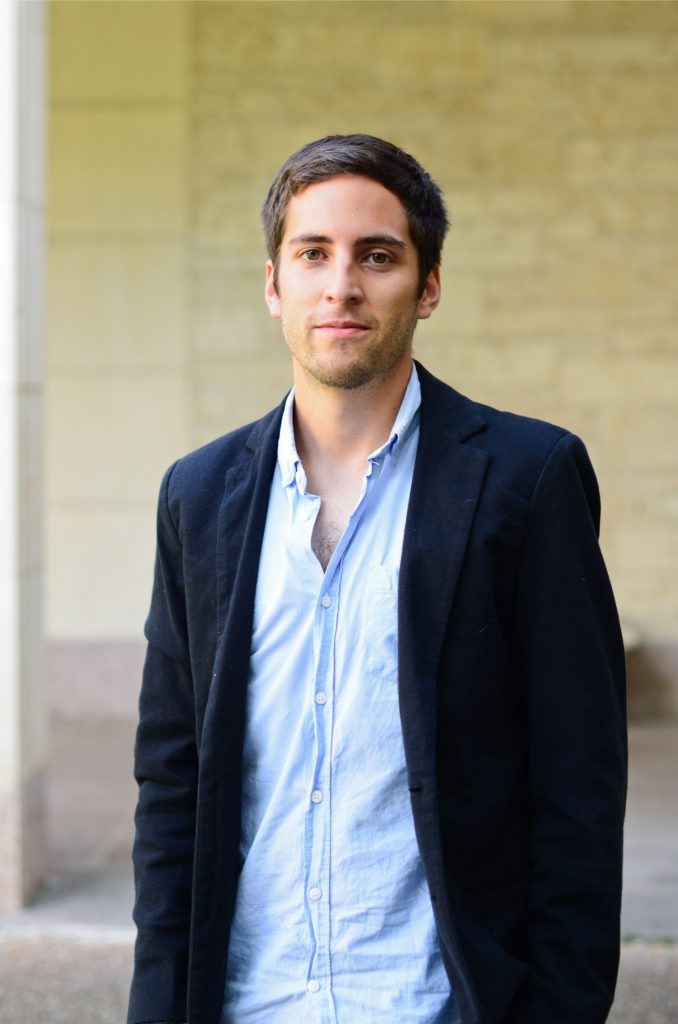

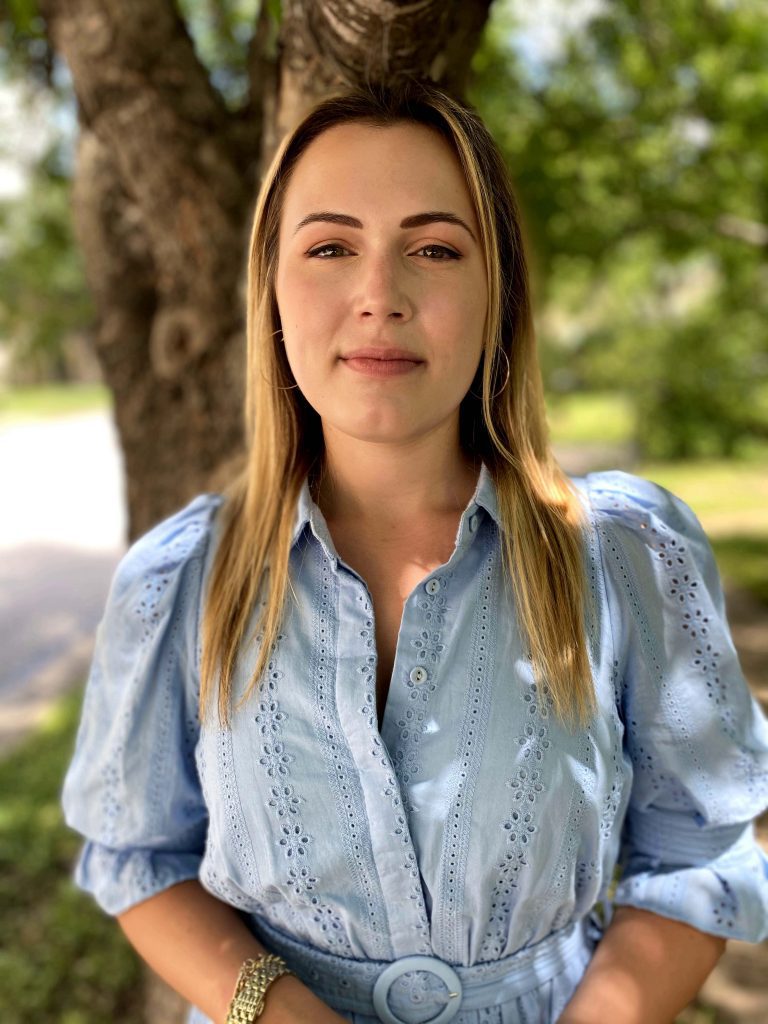
“Skiing on the Sacred: The San Francisco Peaks, Indigenous Rights, and the U.S. Ski Industry”
Jesse Ritner is a Ph.D. candidate studying U.S. environmental history. His dissertation “Elegy of a Dying Sport: Snow, Technology, and the Rise of the North American Ski Industry” explores how science and technology were used to build a weather-dependent sport in climates that lacked the reliable snowpack needed for alpine skiing. His project then traces how new technologies created new classed and racialized relations between the ski industry, skiers, laborers, and the non-human world. “Skiing on the Sacred” is closely related to the final chapter of his dissertation which looks at the ways in which technology created a dependent relationship between the ski industry and the Forest Service at the expense of nearby populations. The article “Skiing on the Sacred” in contrast focuses on the ways in which laws, the Forest Service, and the ski industry systematically invalidated Indigenous claims to the San Francisco Peaks. Jesse has received several grants and Fellowships for his research, including an especially generous grant from the American Meteorological Society. Along with studying history, Jesse is also an avid skier.
“Covarrubias’ Crossings: Picturing the New Negro and the Making of Modern Mexico”
Rodrigo Salido Moulinié is a writer, photographer, and doctoral student in the Department of History at the University of Texas at Austin, where he is a Fulbright-García Robles Scholar and a Contex Doctoral Fellow. His work explores the interconnections between the histories of photography, science, and anthropology. I trace the tensions between the making of ethnography and the development of new visual methods of representing otherness—photography, painting, sketching, and writing. In 2018, nexos awarded my essay “Testigo (in)voluntario: la muerte de Kevin Carter” with the Carlos Pereyra Essay Prize. I was born and raised on the outskirts of Mexico City, where I worked in various filmmaking and music projects. I graduated in Politics and Public Administration from El Colegio de México. Learn more about his work at www.rsmoulinie.comm and follow him on Twitter at @rsmoulinie.
“’They Have Always Worn Spanish Clothes:’ Indigenous Elites and Sumptuary Legislation in Seventeenth-Century New Spain”
Haley Schroer is a Ph.D. candidate in colonial Latin American history. Her work focuses on the intersection of race and material culture in colonial Latin America. In particular, her dissertation examines the rise of racialized clothing laws in the Spanish Empire throughout the seventeenth century. Her research has received support from the Fulbright Program, The Social Science Research Council International Dissertation Research Fellowship Program, the P.E.O. Sisterhood, and The Conference on Latin American History’s James R. Scobie Award. Schroer received a B.A. in History and Spanish, Summa Cum Laude, from Texas Christian University in 2016. She earned her M.A. from UT-Austin in May 2018 where her master’s report, “‘Scandalizing the Public’: Clothing and Perception in Mexico City’s Seventeenth-Century Inquisitorial Sumptuary Trials” won the 2019 Perry Prize for Best Master’s Thesis/Report. She is currently completing her dissertation under the direction of Susan Deans-Smith and Ann Twinam.
“‘Whether We Bore The Resemblance of Indians’: Kinship and Coalition Building in Black and Indigenous New England”
Alina Scott is a History Ph.D. Candidate at the University of Texas at Austin. Her research explores eighteenth and nineteenth-century Native intellectual history and literature, digital humanities, critical race theory, archival studies, gender and sexuality, and religion. Her dissertation,”Murder by Inches: Indigenous Intellectuals, Land, and Sovereignty in Wampanoag Petitions, 1820-1850″ examines Indigenous petitioning campaigns and protests throughout the nineteenth century. Alina has served as Associate Editor and Communications Director at Not Even Past and a managing editor for Native American and Indigenous Studies Journal. She hosts the weekly 15 Minute History Podcast, part of the University of Texas’s Podcast Network. Her research has been supported by Department of History, the University of Texas at Austin, the McNair Scholars Program, Native American and Indigenous Studies Program at the University of Texas at Austin, National Society of the Colonial Dames of America, Andrew W. Mellon Fellowship at the Massachusetts Historical Society, Georgetown Humanities Ambassador Fellowship, and the Institute For Historical Studies, University of Texas at Austin.
The views and opinions expressed in this article or video are those of the individual author(s) or presenter(s) and do not necessarily reflect the policy or views of the editors at Not Even Past, the UT Department of History, the University of Texas at Austin, or the UT System Board of Regents. Not Even Past is an online public history magazine rather than a peer-reviewed academic journal. While we make efforts to ensure that factual information in articles was obtained from reliable sources, Not Even Past is not responsible for any errors or omissions.

